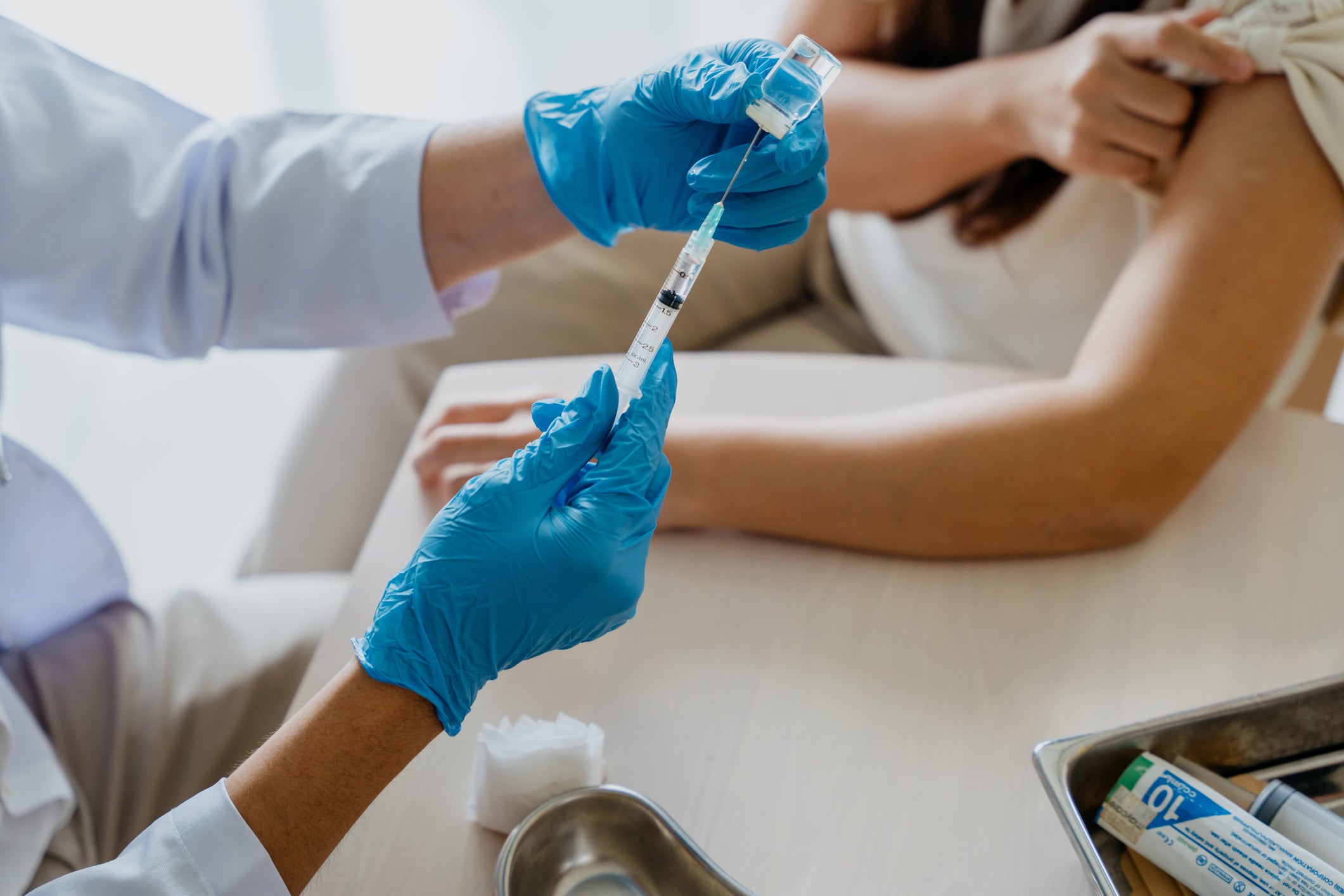HPV jab ‘may ward off cervical cancer in women with pre-cancerous cells’
New study suggests vaccine could help stop cancerous cells returning

Women who have pre-cancerous cells on their cervix might benefit from being given the HPV vaccine, a new study suggests.
Girls and boys aged 12 to 13 are routinely offered the human papillomavirus (HPV) jab, which helps prevent against cancers caused by the virus, including cervical cancer, anal cancer and some head and neck cancers.
The vaccine was introduced in 2008 and people who were over the age of 13 before that date are not routinely offered the jab.
But a new study suggests that women who are found to have pre-cancerous cells on their cervix might benefit from receiving it.
Once a woman is identified as having high-grade pre-cancerous cells on her cervix she has a life-long risk of developing cervical cancer.
But it has been suggested that having the jab might stop the lesions returning, as well as protecting against other cancers caused by HPV.
The new research, published in the BMJ, involved academics examining 18 previous studies on the topic.
The results showed that the risk of recurrence of “high-grade preinvasive disease” was reduced by 57 per cent in individuals who were vaccinated alongside surgical treatment for cervical lesions, compared with those who were not vaccinated.
The findings were even stronger among women who were found to carry the strains of the virus most linked to cervical cancer.
But the authors stressed that more work is needed to confirm the findings.
“HPV vaccination at the time of local excision… might lead to a reduction in the risk of recurrence of high-grade preinvasive disease,” the authors wrote.
“Large, appropriately powered randomised controlled trials are required to establish the effectiveness of HPV vaccination at the time of surgical treatment of cervical preinvasive disease.”